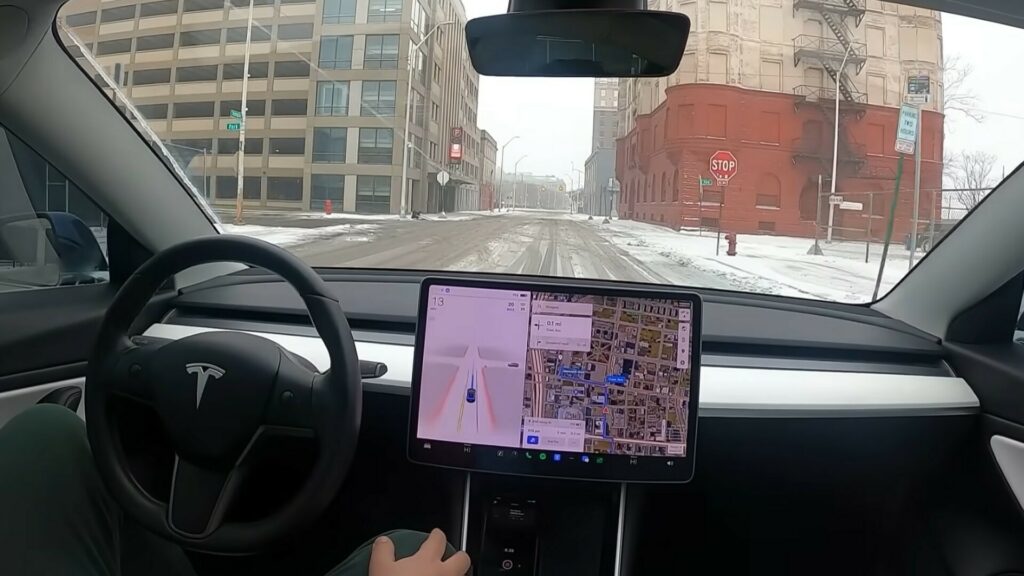While automakers have made great progress in terms of safety and ADAS over the past decade, the dream of a fully autonomous production car has yet to be achieved. A new video from the snowy roads of the Detroit area proves that the latest update of Tesla’s Full Self-Driving (FSD) system can’t function properly in bad weather, with its performance deemed dangerous to say the least.
The video was uploaded on YouTube by the Detroit Tesla channel and is a real-life test of the FSD Beta 10.69.25 update. From the start it is clear that this is not going to be a smooth ride, as the driver says: “I don’t think this will be a very long drive, because I am just out here risking my life and the car’s life to make content”.
Watch: Tesla’s Full Self-Driving Struggles In Snow-Covered Edmonton
The Full Self-Driving mode is activated and the system does its best to keep track of the curb. It obviously takes input from the navigation map since the sensors can’t really see when the road is covered in snow. While the FSD does a pretty good job in detecting incoming traffic, it often steers to the right being unable to follow its lane and stay in course.
Even at very low speeds of 15-20 mph (24-32 km/h) the Tesla is unable to follow the selected route without input from the driver that steps in to save the day when the car changes direction with no apparent reason. The situation is so bad that the driver says “I don’t know how are they going to achieve full autonomy when half the world has these conditions of snow, rain, and ice”, adding that Tesla’s system “is definitely still not ready for horrible weather like this”. In areas where the roads are not entirely covered with snow, the Tesla performs a lot better, but still not good enough for the driver and passengers to feel safe.
It is not all bad though as the driver suggest there are some improvements compared to older versions of the Tesla FSD Beta. When the tail of the vehicle slips during a turn, the system now has the ability to stabilize it instead of automatically disengaging and asking the human to take over which was often the case in the past. Still, its performance can’t justify the “Full Self-Driving” part of the title, even with the Beta attached to it.




